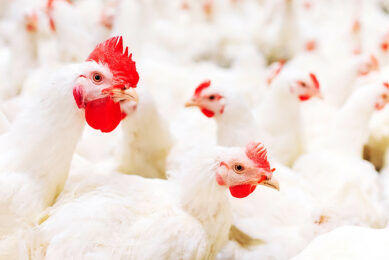Nature’s osmolyte power to combat heat stress
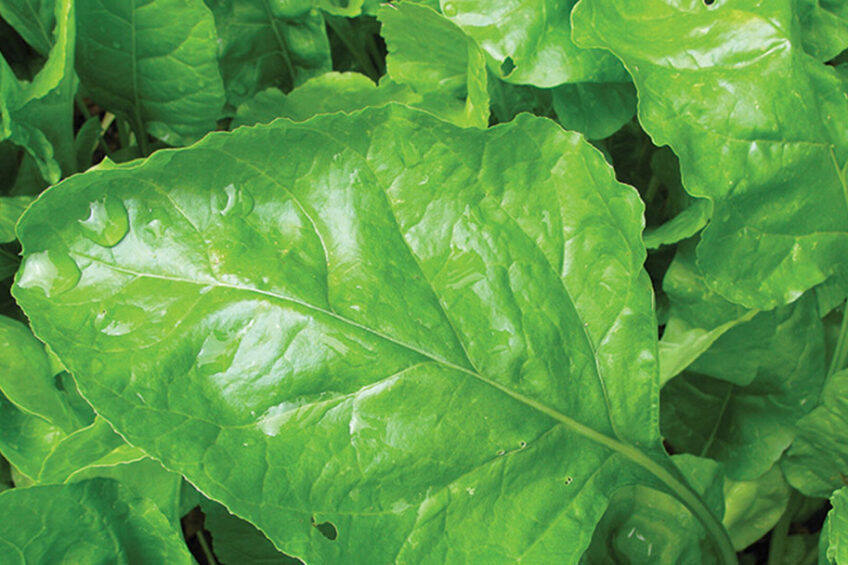
Heat stress can negatively impact the health, performance and wellbeing of poultry. Research shows that the dual action of natural betaine can help producers mitigate these risks and maintain profitability.
When birds are exposed to hot and humid conditions over a prolonged period, they struggle to balance body heat loss and body heat production. This inability to regulate their internal temperature can lead to heat stress, which is a major cause for concern.
Birds suffering from excessive heat load eat less, drink more and demonstrate unwanted behavioural changes such as increased panting, wing flapping and aggression. However, heat stress is not only an animal welfare issue. The detrimental effects of heat stress can cause significant production losses due to a range of associated problems including reduced growth, lower feed efficiency, poor egg quality, decreased immunity and increased mortality rates.
So why does this happen?
Metabolic changes
On a metabolic level, heat stress increases plasma cortisol and reduces thyroid hormone levels. With the physiological homeostasis compromised in this way, important changes in protein and fat metabolism occur that negatively affect poultry growth, reproduction and health.
Lower protein and fat production and storage are also an immediate consequence of reduced feed intake. In addition, fatty acids are mobilised from the adipose tissue and, if in excess, are re-esterified into triglycerides and stored in the liver, causing fatty liver disease when energy supply is reduced.
Importantly, heat stress can also disrupt the delicate balance of microbiota in the gut; decreasing the diversity of commensal gut bacteria and their compounds, as well as altering the pH. This means that digestion, absorption and nutrient supply are all compromised as a result.
Effective management strategy
Given the birds’ complex behavioural and physiological response to heat stress, producers need to take targeted measures to mitigate the risks.
Improving housing design with proper ventilation, air circulation and water management, for instance, can help to counter rising ambient temperatures. Good husbandry and genetic breeding to encourage good thermoregulating characteristics in the birds are also important considerations.
At the same time, poultry producers need to scrutinise their feed and nutrition strategies to ensure they are optimised for heat stress events. Within this space, supplementation with natural betaine is now increasingly recognised as an important solution.
Natural betaine: Dual mode of action
Natural betaine is a trimethyl derivative of the amino acid glycine ((CH3)3NCH2COO), with two main physiological roles; it acts as an osmolyte and as a methyl donor.
As a naturally occurring osmolyte, betaine helps cells stay hydrated by interacting with cellular water to maintain water and ion balance. At the same time, it protects cellular organelles, enzymes and proteins and so enables these components to maintain normal functions despite the stresses caused by high temperatures. By helping cells ‘cope’ with dehydration in this way, natural betaine helps to prevent valuable metabolic energy being diverted away from growth and lean gain.
As a methyl donor, betaine contains and donates methyl groups via transmethylation for many essential biological functions, such as synthesis of creatine and carnitine associated with generation of metabolic energy, DNA/RNA synthesis, muscle growth and immune cell function. It contains three methyl groups and can donate some or all of these more efficiently than other traditional methyl sources in animal feed, such as choline chloride and methionine. By mobilising fat from liver tissue, it also helps to maintain liver health.
At the same time, natural betaine works to maintain gut integrity and health by promoting the growth of commensal microbes; a diverse and functionally active microbial community that prevents damaging digestive conditions such as leaky gut.
In practice, this dual function means supplementation with natural betaine helps poultry producers mitigate the detrimental effects of heat stress in several important ways. From improving hydration and increasing nutrient absorption to reducing energy expenditure, this natural feed additive helps producers combat heat stress and maintain poultry performance.
Proven benefits
A strong body of evidence demonstrates a range of positive responses to natural betaine during heat stress among poultry.
For example, a series of trials showed that Betafin natural betaine reduces the negative impact of heat stress on broiler performance and production economics. Reviewed together, all 5 studies demonstrated a strong improvement in feed conversion ratio (FCR), with percentage gains ranging from 4.2% to 6.6% compared to control (Figure 1).
Figure 1 – Betafin reduces the negative impact of heat stress on broiler performance. FCR % improvement versus control.
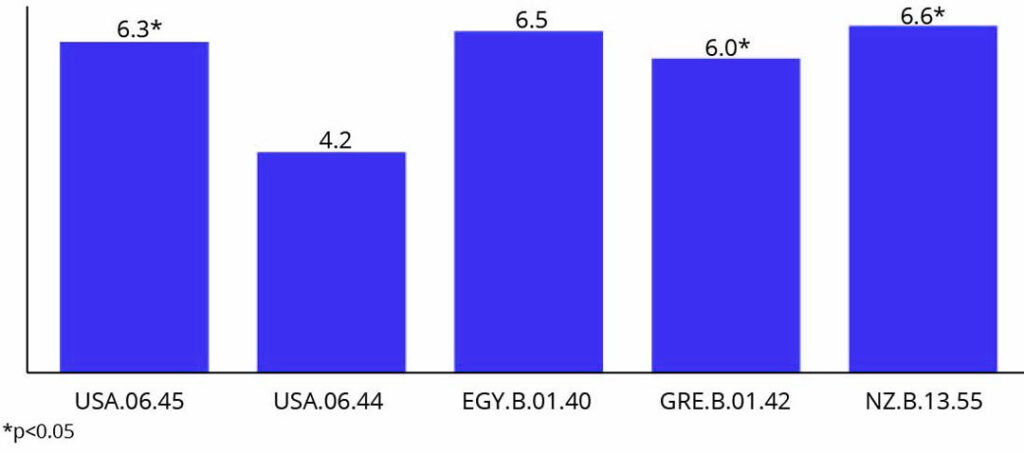
Equally significant is the positive effect of natural betaine on key performance parameters for breeders. A recent trial, using a total of 22,847 birds supplemented with 2 different natural betaine treatments during weeks 30 to 37, showed clear improvements in fertility, hatchability and saleable chicks (Figure 2).
Figure 2 – Effect of Betafin on egg quality of heat stressed breeders.
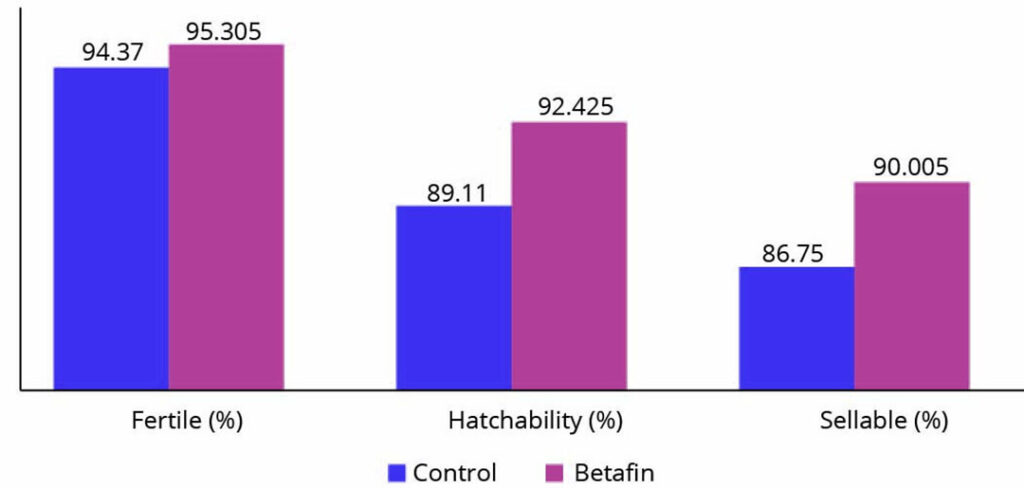
In addition, natural betaine has been shown to improve the performance of laying hens suffering from excessive heat load. In a 32-day trial among 3,000 laying hens, those supplemented with natural betaine recorded improvements in hen day production and egg mass – at just over 13% and 10% respectively (Figure 3).
Figure 3 – Improvement in laying hen performance using Betafin in heat stress conditions.
| 3000 Laying Hens Breed Lohmann Brown | Two treatments; Control (no Betafin), Treatment 1 Kg/MT Betafin S4 | 32 days of trial | Open house with high stress condition |
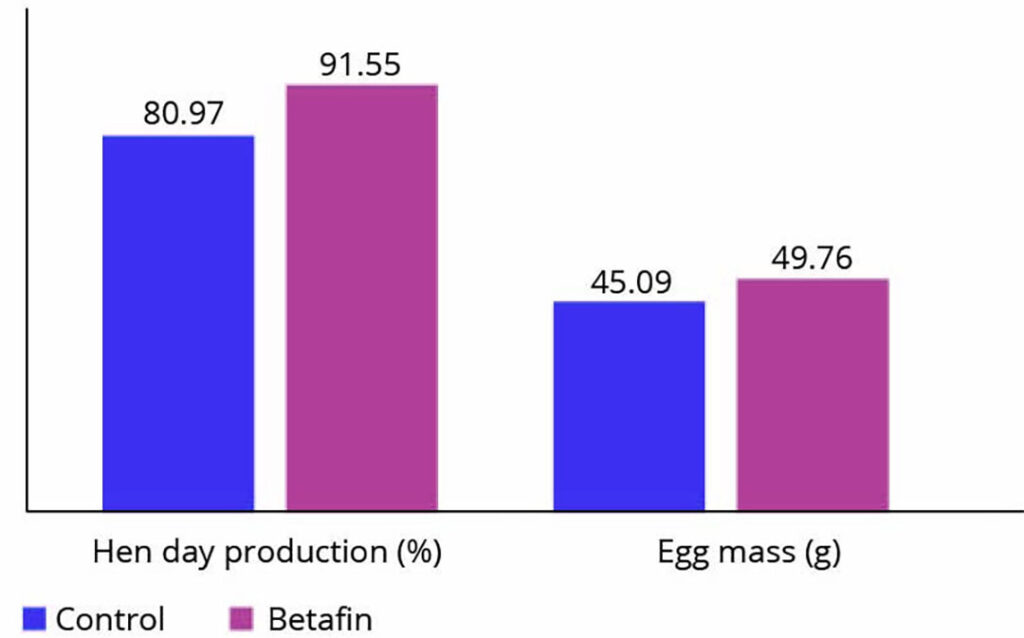
Elsewhere, research also suggests a wider role for betaine supplementation during times of stress. This includes improving the water holding capacity of cells, respiration rate and rectal temperature, as well as supporting better meat quality and improving livability rates.
Beneficial functions of natural betain
The dual action of natural betaine makes it a highly effective means of reducing the negative impact of heat stress on broiler performance and production economies. As an osmolyte and methyl donor, it helps to protect cells against dehydration and reduces the energy expenditure of ion pumps, while improving feed efficiency, maintaining liver health, and supporting gut integrity.
Overall, the multiple functions of natural betaine make it a valuable addition to nutrition strategies designed to optimise poultry performance under these challenging conditions.




